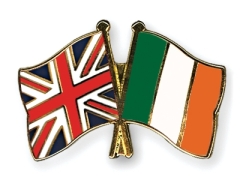A tragic rape case in Chile has sparked calls for legalizing abortion in the South American country. An eleven-year-old girl from Puerto Montt known as “Belen” is 14 weeks pregnant after having been repeatedly molested by her mother’s boyfriend.
Rather than being outraged at the rapist, abortion-promoters have seized upon Chile’s law prohibiting abortion in all cases. Even the mother has shamefully spoken in defense of the rapist and called for the abortion of her grandchild. The popular Presidential candidate, Michelle Bachelet, said via Twitter: “Michelle has a plan to decriminalize therapeutic abortion in cases of rape.” Bachelet previously promoted pro-abortion policies during her tenure as the head of UN Women.
The young girl, however, has declared her desire to keep the unborn child. “I’m going to love the baby very much, even though it comes from that man who hurt me,” Belen said in a TV interview. “It will be like having a doll in my arms.” Current pro-life President Pinera praised the girl for her “depth and maturity” and has asked the health minister to personally look after the girl’s health.
“Anyone who truly cares about a rape victim would want to protect her from the rapist, and from an abortion, and not the baby,” said Personhood Education spokesperson Rebecca Kiessling, who was conceived in rape and has become an outspoken advocate for others like her and for women, such as her mother, who have been raped.
“A baby is not the worst thing which could ever happen to a rape victim—an abortion is,” continued Kiessling. “That’s why most rape victims not only choose life for their children, but they choose to raise their child conceived in rape. They express that the baby brings healing, but abortion brings more suffering and destruction—another violent intrusion into her womb. My birthmother says that I’m a blessing to her. I honor her, and I bring her joy.”
In 2006, abortion allowed a serial rapist in Kansas, Robert Estrada, to repeatedly abuse his four step-daughters, aged 11-16. The sexual abuse was covered up because Estrada easily procured legal abortions for the girls.
“Abortion emboldens rapists,” said Jennifer Mason, Personhood Education’s communications director. “If abortion were legal in Chile, it would allow criminals like this to escape being caught, because he can take the victim to a local abortion provider, dispose of the evidence, and continue to victimize the young girl. Abortion for rape and incest is not compassionate; it is cruel. If Chile wants to protect girls like Belen, it shouldn’t give cover to rapists and criminals.”
Abortion increasingly victimizes women, but it also kills the second victim of rape: the unborn child. Personhood Education warns that legalizing abortion for rape and incest undermines the personhood of the unborn child and will lead to total legalization of abortion.
“Students of abortion history will recall that the gradual legalization of abortion in the cases of rape and incest undermines the personhood of the unborn child,” Mason continued. “If the right to life can be abrogated in cases of rape and incest, why should we respect it in other instances? The child in the womb is a person with rights, regardless of the circumstances surrounding his or her conception.”
The 1989 ban on abortion in Chile was correlated to a near total reduction in abortion-related maternal mortality. In 2008, Chile had the second lowest maternal mortality rate in the Americas, just behind Canada and ahead of the United States.











